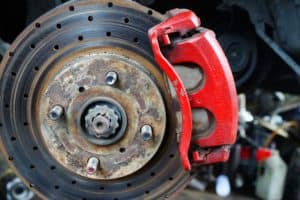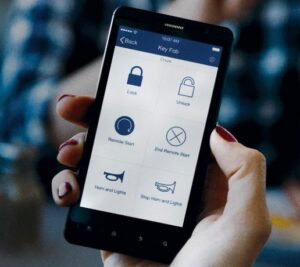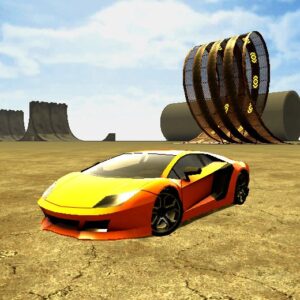If your car cranks but won’t start, the issue could be with the fuel system, battery or ignition system. Diagnosing and fixing the problem quickly can save you from costly repairs or a tow truck.
Car troubles can be frustrating, especially when you are in a hurry. A cranking engine that refuses to start can be a sign of trouble with various systems in the car. While the problem could be as simple as an empty gas tank or a dead battery, it could also be a symptom of a more complex issue that requires the attention of a mechanic.
In this guide, we will explore some of the common reasons why a car cranks but won’t start, and some simple steps you can take to troubleshoot the issue.

Credit: www.youtube.com
Warning Signs Your Vehicle Is Experiencing Starting Issues
When your car cranks but doesn’t start, there could be several reasons why. One surefire way to tell if your vehicle is experiencing starting issues is when you hear an unusual engine noise. Another warning sign is when your headlights or interior lights dim or flicker.
If your vehicle takes multiple attempts to start, this is a clear sign that something is wrong with your ignition system or fuel system. It’s important to have this issue checked out by a certified technician to avoid causing even more damage to your vehicle.
Ignoring these warning signs could lead to costly repairs in the long run, or even worse, leave you stranded on the side of the road. Don’t let starting issues get in the way of your daily routine. Get your car checked today to ensure proper functionality and safety on the road.
Understanding The Problem
When your car cranks but won’t start, there could be several fuel system issues to look out for. A clogged or dirty fuel filter could prevent fuel from reaching the engine. Fuel pump failure may also occur due to a lack of gasoline.
It’s also possible that engine system failure could be the culprit, stemming from problems with the spark plugs or ignition system. Timing chain or belt break could also be the problem. Finally, battery problems may contribute to the issue, whether it be a dead battery or corroded battery terminals.
Be sure to troubleshoot each of these potential issues to determine the cause of your car’s starting problem.
Checking The Fuel System
When a car cranks but doesn’t start, the fuel system is often the culprit. Identifying the fuel pump and fuel filter is the first step. Troubleshooting the fuel pump can be done with a fuel pressure gauge. If the fuel pressure is low, the pump may need to be replaced.
The fuel filter can also cause start issues if it’s clogged. Replacing the fuel filter is a simple task, but locating it can differ between vehicles. Regular maintenance can prevent these issues from occurring. Keep an eye on your vehicle’s fuel system to ensure that it’s running smoothly.
Inspecting The Engine
Car cranking but not starting could mean it has various issues. Inspecting the engine is crucial in determining the problem. Starting with the spark plugs, check for any fouling or damage. Analyzing the ignition system is also essential. If the plugs and ignition are working, then it’s time to look at the timing chain or timing belt.
Timing issues can cause starting difficulties. Inspecting the spark plugs, ignition system, and timing belt/chain are three key steps in determining why a car is cranking but not starting. Be sure to address these areas if you want to save time and money in fixing your car.
Checking The Battery
To check the battery, you need to inspect its charge. Low battery voltage can cause starting problems. The next step is to inspect the battery terminals. Corrosion can prevent the battery from properly delivering power to the car. If you have a faulty battery, the only option is to replace it.
Consult your owner’s manual for model-specific instructions. Remember to wear gloves and safety glasses when handling car batteries.
Tips For Maintaining A Healthy Fuel System
Regular fuel system maintenance is critical to avoid the frustrating issue of a car that cranks but won’t start. Scheduling fuel system inspections should be a top priority to keep your car in good working order. Cleaning fuel injectors is another essential aspect of fuel system maintenance that can lead to improved fuel efficiency and performance.
Also, checking your engine oil regularly is essential to the overall performance of your car. Neglecting to maintain your fuel system can lead to a host of issues and potentially costly repairs. Keep these tips in mind to ensure a healthy fuel system and avoid any headaches in the future.
Tips For Preventing Engine And Ignition System Failure
Consistent vehicle maintenance is key to preventing engine and ignition system failure. Regularly replacing spark plugs, follow recommended oil changes and identifying warning signs early can avoid costly repairs. Waiting until the car cranks but won’t start before seeking professional help can lead to dangerous situations.
It’s important to always pay attention to your car and to take action as soon as you notice something is off. Additionally, try to start your car each week even if you’re not planning to use it. This can help maintain the battery and ensure that your car is ready to start when you need it.
Frequently Asked Questions On Car Cranks But Wont Start
Why Is My Car Cranking But Not Starting?
If your car cranks but won’t start, it could be due to several reasons, including a dead battery, fuel pump issues, or ignition problems.
What Should I Do If My Car Won’T Start?
If your car won’t start, the first step is to check the battery, fuel pump, ignition system, and fuses, and replace them if necessary.
Can A Bad Alternator Cause A Car Not To Start?
Yes, a bad alternator can cause a car not to start by not providing enough power to start the engine or recharge the battery.
How Do I Know If My Fuel Pump Is Bad?
Signs of a bad fuel pump include engine sputtering, difficulty starting the car, misfiring, and low fuel pressure. A mechanic can perform a fuel pressure test to diagnose the issue.
What Are Some Other Reasons Why A Car Won’T Start?
Other reasons why a car won’t start include a faulty starter, problems with the fuel system, faulty spark plugs, or a clogged air filter. A mechanic can diagnose the issue.
Conclusion
At times, it is often frustrating when your car cranks but won’t start. However, it is imperative to remain calm and composed. This blog post has highlighted different reasons why your car may not start or crank, along with solutions to each scenario.
It is crucial to understand that these issues can be fixed with the right knowledge, tools, and time. If you are not confident about fixing these problems yourself, seeking help from a professional mechanic is always an option. Regular maintenance, troubleshooting, and identifying any issues early can go a long way in ensuring your car always starts when needed.
Ignoring small issues can lead to more significant problems and costly repairs in the future, so take action promptly. Remember, safety first, always ensure that you follow all safety protocols when troubleshooting your car.






